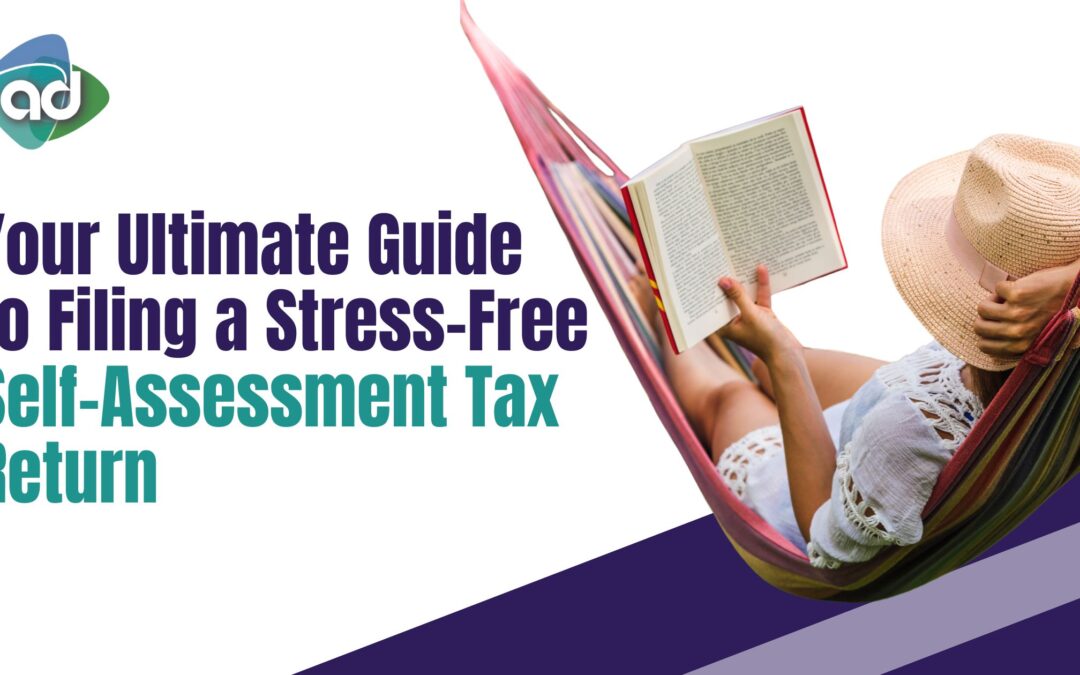The self-assessment tax return deadline of 31st January 2025 is fast approaching. If you’re one of the millions in the UK who needs to file, it’s time to get organised and avoid the last-minute rush.
Whether you’re a sole trader, landlord, or have other sources of untaxed income, this guide will walk you through everything you need to know to file your tax return stress-free.
At Accounts Direct, we’ve helped thousands of clients complete their self-assessments accurately and on time – saving them stress, time, and money. Follow these tips to make your 2024 filing a breeze.
1. Who Needs to File a Self-Assessment?
Before diving into the process, make sure you actually need to file a self-assessment tax return. You’ll need to complete one if you:
- Are self-employed or a sole trader.
- Earn income from property rentals.
- Have untaxed income, such as dividends or foreign income.
- Earn over £100,000 annually.
- Need to pay Capital Gains Tax on assets you’ve sold.
HMRC’s full criteria can be found on their website, but if you’re unsure, our team is happy to advise. It’s better to check now than face penalties later.
2. Gather All the Required Information
One of the most stressful parts of self-assessment is tracking down all the paperwork. Save yourself the panic by starting early. Here’s what you’ll need:
- Income records: Invoices, payslips, or any other proof of income.
- Expense receipts: If you’re self-employed, keep records of allowable expenses like travel, office supplies, and utility bills.
- P60/P45: If you’re employed alongside earning untaxed income, these documents will show what tax has already been paid.
- Bank statements: Helpful for cross-checking income and expenses.
- Tax relief documents: Anything related to pension contributions, charitable donations, or child benefit repayments.
Having these ready in advance will save you hours of stress – and possibly prevent costly mistakes.
3. Maximise Your Allowable Expenses
If you’re self-employed or have other income streams, you might be entitled to claim a range of expenses to reduce your tax bill.
Common ones include:
- Mileage and travel costs: Driving to business meetings, public transport fares, or even accommodation if it’s work-related.
- Home office expenses: A proportion of your rent, utilities, and internet costs if you work from home.
- Professional fees: This could include accountant fees (like ours!), subscriptions to industry organisations, or software you use for work.
- Marketing and advertising: Including website costs and social media ads.
The key to maximising your deductions is good record-keeping. If you’re unsure what you can claim, our team at Accounts Direct can review your expenses to ensure you’re not leaving money on the table.
4. Don’t Leave It to the Last Minute
One of the biggest mistakes people make is waiting until January to start their tax return. Not only does this increase stress, but it also makes you more likely to make errors.
Leaving it late can mean:
- Longer wait times for help from HMRC or your accountant.
- Missing important documents in the rush.
- Risking penalties for filing incorrectly or late.
Start now, and you’ll thank yourself later. If you need help, getting an accountant involved early ensures your return is accurate and takes advantage of every available deduction.
5. Why Letting an Accountant Help Makes Sense
Filing your self-assessment can feel like a full-time job. Mistakes aren’t just stressful – they’re expensive. That’s where we come in.
Accounts Direct has helped thousands of people like you keep more of their hard-earned money while staying on HMRC’s good side. Whether it’s spotting deductions you didn’t know about, filing error-free, or just taking the weight off your shoulders, we’ve got you covered.
Here’s why people choose us:
- We save you time and hassle.
- We ensure your tax return is accurate and stress-free.
- We’ll always go the extra mile to find savings for you.
6. What Happens if You Miss the Deadline?
If you miss the 31st January deadline, HMRC imposes an automatic £100 fine – even if you don’t owe any tax. The longer the delay, the higher the penalties:
- £10 per day for up to 90 days.
- 5% of the tax due if it’s more than three months late.
Avoiding these fines is simple – file on time or let Accounts Direct handle it for you.
7. How to Get Started Today
The earlier you start, the smoother the process.
Here’s how you can file your tax return stress-free:
- Gather your paperwork – Get all your income and expense records in one place.
- Check HMRC’s rules – Make sure you’re clear on what needs to be included.
- Reach out to Accounts Direct – We’ll handle the rest.
Why Wait? Let’s Get It Done Together
The self-assessment deadline might feel far off, but it’ll be here before you know it. Don’t wait for the last-minute scramble – let Accounts Direct take care of it all.
📞 Call us today: 0161 832 1399 Speak directly to our friendly team.
💻 Fill in our quick contact form – We’re here to help.
📍 Visit one of our offices – We’re in Manchester, London, and Belfast.
Let’s make tax season painless – and maybe even save you some money along the way.

